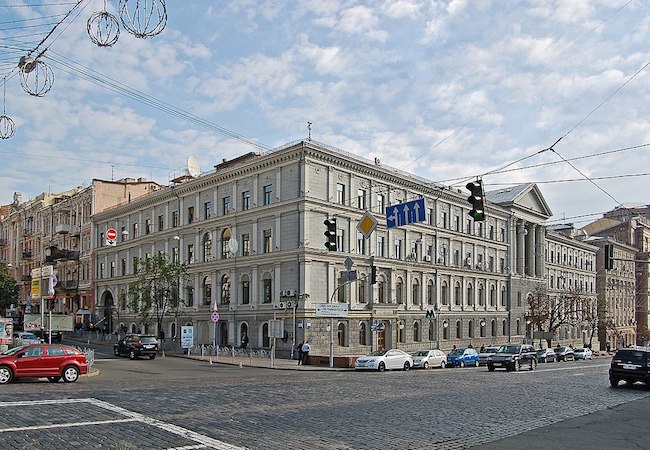
The migrant crisis in the European Union, exasperated by deteriorating relations with Russia and Belarus, has once again underlined the fragility of European security, but also reminded us of Europe’s ability to invest billions in technologies and pursue a more integrated, cooperative approach to European security and defence. This should entail a more parochial approach when considering contracts for private military and security companies (PMSCs), many of which have proven to be less than reliable in their covetous, unscrupulous approach to missions in Africa bordering on the unethical.
European Common Security and Defence Policy
Europe has interests to defend across the globe, but the lack of a European Army has underlined how it has few means to do so. Since the 1948 signing of the Treaty of Brussels, the idea of a common European approach to security and defence has been an integral part of the European approach to security and sovereignty worldwide.
Since the end of the Cold War and the resulting conflicts in the Balkans, it became clear that the EU needed to “assume its responsibilities in the field of conflict prevention and crisis management.” The European Common Security and Defence Policy (CSDP) has provided the EU with an operational capacity to undertake civilian and military missions abroad with the goal of preserving sovereignty through peacekeeping, disarmament, and advisory and crisis management missions.
There are currently 17 ongoing CSDP missions, 11 of which are civilian and 6 of which military, with the most far-reaching focused on Africa, including the EUBAMcivilian security mission in Libya, EUTM missions in Mali, Somalia and the Central African Republic, and EUCAP Sahel missions in Mali and Niger, among others. These missions have involved not only actors from EU member states, but foreign PMSCs, to whom the awarding of lucrative contracts may ultimately compromise EU objectives.
Africa, the PMSC playground
If the fallout from the Blackwater scandal during the Iraq war taught us anything, it is that rogue, reckless private security companies operating indiscriminately in war-zones or during foreign security and defence missions can cause more problems than they solve. But with Western powers reluctant to deploy their own soldiers in volatile regions, mercenaries are becoming commonplace, especially in Africa.
With the Western retreat from the Middle East, PMSCs have found a new playground in African countries enduring civil wars or the threat of Islamist extremism. The presence of these often unshackled actors has inevitably led to accusations of human rights violations and war crimes, most notably against the Russian Wagner Group operating in the Central African Republic, Mozambique, Madagascar, Sudan, and Libya; another weapon in the Russian strategic approach of plausible deniability.
Why the EU should be wary of foreign firms
While it is easy enough for Western states to point the accusing finger at Russian entities operating on foreign territories, it would perhaps be prudent to put the involvement of certain Western actors a little more under the microscope. On closer inspection, it would seem the activities of some foreign contractors hired by the EU have been treading the fine line between the questionable and the unethical, especially when it comes to the financial side of such activities.
British private security firm, Page Group, for example, was given a contract to protect EU diplomates in Afghanistan back in 2013, in spite of ongoing questions surrounding its local tax compliance. The contract was worth €30-€50 million over four years, and was awarded in spite of the group lacking the correct authorisation to work. One source told the website EU Observer that “it’s just like Libya. In Libya, G4S had no authorization to work, but the EEAS [European External Action Service] gave it the contract anyway. Here, Page Group has no authorization to work because it’s not in line with fiscal rules, but the EEAS gave it the contract anyway.”
Another PMSC who received EEAS money for security purposes abroad was the Canadian private security firm GardaWorld. Back in 2012, GardaWorld contractors were arrested in Afghanistan for the apparent illegal arms transport after being caught by Afghan police with 30 Kalashnikovs that had had their serial numbers scratched off. More recently, French police raided the firm’s Brussels office in an apparent corruption probe into its practices in Somalia.
Why the EU should place trust in European firms
In a 2011 report on the use of PMSCs in CSDP programs drawn up for the European Parliament, it is stated that “among the main advantages [of using PMSCs] are the ability to enhance EU capabilities… the potential for increased cost-efficiency and effectiveness by hiring local and specially trained staff; the reduction of the military footprint of multilateral operations; the generation of economies of scale and improved coordination through centralized contracting for military and civilian support services; and the provision of employment opportunities for host nations.” But the dubious activities of foreign PMSCs might alert European authorities to the risks associated with looking abroad for private security contractors.
Robert Moore is a business analyst and project manager.




